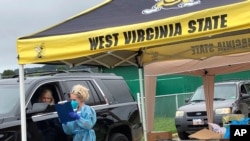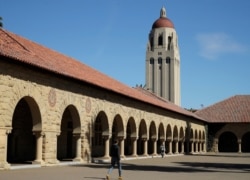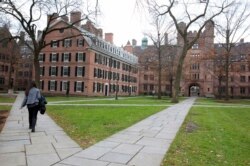Student Union
Screen College Students for COVID Every 2 Days, Researchers Advise

U.S.-based colleges and universities continue to struggle with how they will receive students while containing the spread of COVID-19.
Nearly 40% of schools say they will bring students back to campus, according to the Chronicle of Higher Education, which has compiled a database of college and university responses to COVID since the spring.
Even at schools where classes are 100% online, many students are living off-campus and taking online courses rather than remaining at home with their parents.
Researchers say schools would have to test their students every two days for COVID-19 to ensure their health and safety, and screening after symptoms emerge won’t control the spread, according to a study published July 31.
“We believe that there is a safe way for students to return to college in fall 2020,” the study authors wrote in JAMA Network, the publishing site of the Journal of the American Medical Association, on July 31.
“Screening every two days using a rapid, inexpensive, and even poorly sensitive test, coupled with strict interventions ... was estimated to yield a modest number of containable infections and to be cost-effective,” the authors wrote.
Another study by Cornell University in upstate New York suggested if students were tested every five days, that population would be safer in their campus bubble than the online student population, which would freely circulate where they reside.
But not every school is equipped to conduct COVID-19 testing at that pace because of staffing and cost.
At Mercer University in Macon, Georgia, the school community “must unilaterally share the responsibility of taking the necessary steps to minimize the risk of COVID-19 infections throughout our campuses.” Students will take a survey, and “may be required to be tested for the SARS-CoV-2 infection (COVID-19), depending on their survey responses. Regardless of survey results, any student may request and be tested for COVID-19.”
“Symptom-based screening alone was not sufficient to contain an outbreak,” the study authors wrote.
COVID-19 “can be transmitted by highly infectious but asymptomatic ‘silent spreaders,’” lead study author A. David Paltiel, Ph.D., of the Yale School of Public Health, described to VOA.
“It simply isn’t possible to move swiftly enough to contain an outbreak using nothing more than symptom-based monitoring. You can’t play catch-up with this virus,” Paltiel wrote.
“A school that tests and responds only when symptoms have been observed is like a fire department that responds only to calls when the house is already known to have burnt to the ground.”
At the State University of New York (SUNY) system, students are required to produce negative test results that were taken within 14 days before their arrival back to campus. The university asks them to quarantine between the test and receiving results, according to SUNY’s website.
“If you have symptoms consistent with COVID-19 or a temperature that is over 100 degrees Fahrenheit or 38 degrees Celsius, you will be directed to contact Student Health Services for an evaluation and a determination if you need to have a COVID-19 PCR test,” said the letter to students sent by Rick Gatteau, Stony Brook’s vice president for student affairs.
This, again, may be insufficient, the researchers said.
“Many schools are considering the option of carefully monitoring students for the symptoms of COVID-19 and using signs of illness to trigger isolation, contact tracing, and quarantine. We explored thousands of scenarios and failed to find even one plausible circumstance under which this strategy would be sufficient to contain an outbreak,” he wrote VOA.
“This sets a very high bar — logistically, financially, and behaviorally — that may be beyond the reach of many university administrators and the students in their care.”
At private universities like Stanford University in California, which has a $27.7 billion endowment, students will be tested for free.
“Each student will be tested twice: Once on approximately days 0-2 upon arrival, and then again on days 5-7 of their residence within Stanford housing. The tests will come at no cost to students,” according to the university’s COVID-19 FAQ’s page.
At Columbia University in New York City, all students, faculty and staff returning to campus will be required to take a COVID-19 test, they stated on their website.
“Students who test positive through the university testing program will be referred for contact tracing and will be required to isolate in designated on-campus rooms or in their off-campus residences until released by Yale Health,” Yale University stated on its webpage. “Medical monitoring and advice will be provided by Yale Health during isolation.”
Other educators say it is a struggle to manage social behaviors among young college students that might thwart their efforts.
University of Connecticut Professor Sherry Pagoto in the allied health sciences department, with graduate student Laurie Groshon, conducted student focus groups about returning to campus.
College students return to campus in a few weeks. We wanted to know their thoughts about quarantine, symptom tracking, contact tracing, and mask wearing on campus, so my grad student @laurie_groshon and I did focus groups to find out.
— Sherry Pagoto (@DrSherryPagoto) July 11, 2020
Here’s what students told us
1/x
“Every student we asked said that this is not realistic and will likely fail,” Pagoto tweeted.
“They pointed out that students are eager to see each other and will find a way to do so when they arrive on campus. They said that students who live one to two hours away will try to find a way to go home,” she tweeted. “They said off campus students will likely find their way on campus.”
Dr. Ravina Kullar, an infectious disease expert, backed up the students’ feedback.
“Preventing infection requires everyone to abide by strict infection control measures, including mask-wearing, hand hygiene, and social distancing on campus,” Kullar told VOA.
Colleges have a responsibility to supply students with adequate screening, masks and hand hygiene supplies, Kullar said, but success lies in the hands of the students and staff in abiding by strict COVID-guidance and not having mass social gatherings.
So many opportunities for exposure, and absolutely no routine testing. I'm worried.
— Dr. Theresa Chapple (@Theresa_Chapple) July 31, 2020
>
See all News Updates of the Day
- By VOA News
Competition grows for international students eyeing Yale

It’s tough to gain admission to Yale University, and it’s getting even tougher for international students as standout students from around the world set their sights on Yale.
The Yale Dale News, the campus newspaper, takes a look at the situation here.
- By VOA News
Student from Ethiopia says Whitman College culture made it easy to settle in

Ruth Chane, a computer science major from Ethiopia, writes about her experiences settling into student life at Whitman College in the U.S. state of Washington.
"The community at Whitman College made sure I felt welcomed even before I stepped foot on campus," she says.
- By VOA News
Claremont Colleges student gets a shock when she heads home to Shanghai

In The Student Life, the student newspaper for the Claremont Colleges, a consortium of five liberal art colleges and two graduate schools in Claremont, California, student Rochelle Lu writes about readjusting to her Shanghai home after spending a semester in the United States.
- By VOA News
Cedarville University aims to ease transition for international students

Cedarville University in the U.S. state of Ohio says it’s got more than 140 international students representing 44 countries.
Here, the school interviews Jonathan Sutton, director of international student services. He talks about his job and the opportunities for international students on campus.
- By VOA News
Morehouse College offers prospective students tips on applying and thriving

Morehouse College, a private, historically Black liberal arts college in the U.S. state of Georgia, offers a guide for international students interested in attending the school.
Among the tips to apply and thrive at Morehouse:
- Take advantage of the school’s orientation program
- Turn to the school’s Center for Academic Success for tutoring, support and more
- Immerse yourself in campus life via clubs and societies









